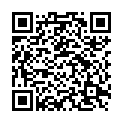|
|
|
| Module code: E2407 |
|
|
3V (3 hours per week) |
|
4 |
| Semester: 4 |
| Mandatory course: yes |
Language of instruction:
German |
Assessment:
Written exam
[updated 08.01.2020]
|
E2407 (P211-0093) Electrical Engineering and Information Technology, Bachelor, ASPO 01.10.2018
, semester 4, mandatory course, technical
|
45 class hours (= 33.75 clock hours) over a 15-week period.
The total student study time is 120 hours (equivalent to 4 ECTS credits).
There are therefore 86.25 hours available for class preparation and follow-up work and exam preparation.
|
Recommended prerequisites (modules):
None.
|
Recommended as prerequisite for:
|
Module coordinator:
Prof. Dr. Horst Wieker |
Lecturer: Prof. Dr. Horst Wieker
[updated 10.09.2018]
|
Learning outcomes:
After successfully completing this course, students will be able to fundamentally describe existing communication networks and analyze extended, optimized and new communication networks with regard to their structure and function. They will have basic knowledge about abstracting networks and will be able to show correlations (similarities and differences) on the basis of theoretical layer models.
[updated 08.01.2020]
|
Module content:
1. Basic descriptions and classifications of communication networks (definition, topologies, spatial extension, type of transmission, connectionless, connection-oriented) 2. Fundamentals of data transmission (synchronous, asynchronous, directional, bandwidth and latency, access methods) 3. Characterization of communication processes (number of communication partners, transmission methods, interfaces, one and two-way communication, delivery sequences, network security)4. Transmission media and channel formation via multiplexing (CU-DA, LWL, air, time, frequency, code and space division multiplex, modulation) 5. Protocols and reference models (layer models, vertical and horizontal communication, the service term, service handover points) 6. Addressing, routing and switching techniques (routing and switching in communication networks)
[updated 08.01.2020]
|
Teaching methods/Media:
Beamer, board
[updated 08.01.2020]
|
Recommended or required reading:
Badach, Anatol; Hoffman, Erwin: Technik der IP-Netze, Hanser, München, (latest edition) Krüger, Gerhard: Lehr- und Übungsbuch Telematik, Hanser, 2004, 3. Aufl. Orlamünder, Harald: Paket-basierte Kommunikationsprotokolle, Hüthig, Bonn, 2005, 1. Aufl. Siegmund, Gerd: Technik der Netze, Hüthig Stevens, W. Richard: TCP/IP, Hüthig, Heidelberg, 2008 Werner, Martin: Nachrichtentechnik, Vieweg, (latest edition)
[updated 08.01.2020]
|


